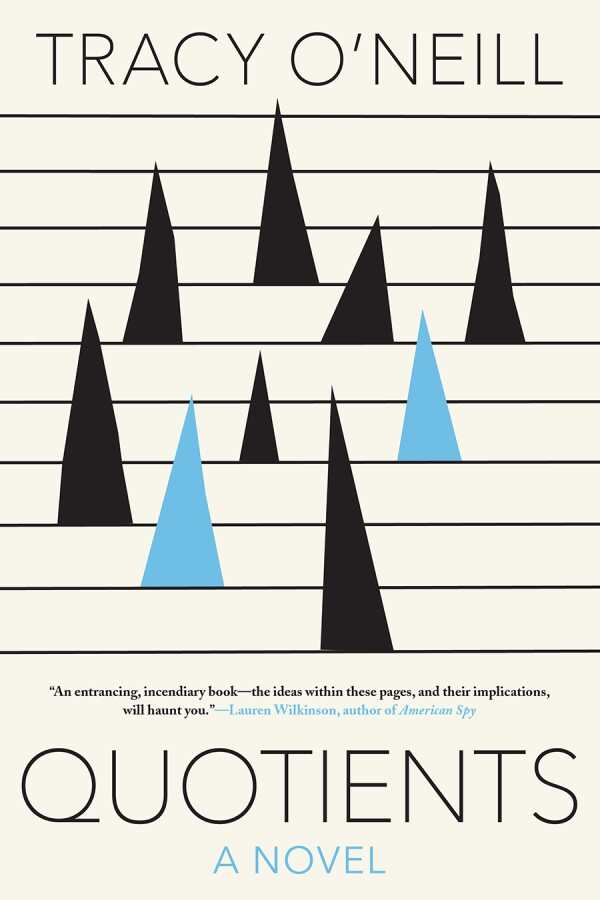
Quotients
When Jeremy meets Alexandra, he believes her light may be enough to eclipse the shadows of his past. Once an operative in Northern Ireland during The Troubles, Jeremy was given a new identity as a social worker, counseling clients and manning crisis hotlines. His former life is kept a secret.
Alexandra works at an image management company with entire countries as its clientele, but her true passion is the search for her missing brother, Shel. When he reaches out to her, she is still not sure that he has been found; his mind is filled with government conspiracy theories that he spouts in disjointed, cryptic ramblings. Beholden to a promise, Alexandra keeps his reappearance a secret from Jeremy, even as she deals with fears that her brother is going mad. The atmosphere becomes taut as the couple’s secrets creep toward the surface of their otherwise picturesque life.
References to real-world events, including the London terrorist bombings, help to track the timeline of the couple’s life together, offering tangible touchstones within the book’s gossamer language. Stirring similes—hair is “thick as a paintbrush on the pillow,” and Jeremy’s knee bounces “like a sewing machine needle”—meld with lines that hitch the breath. Alexandra, her trepidation building as she listens to her brother’s rantings, describes the feeling as “like the moment before a dropped object hits the floor;” elsewhere, Jeremy, upon meeting with a friend from his time as an operative, observes “the world was deadly, and they were pretending to be gentle men.”
Tracy O’Neill’s novel is, at its core, about love in the time of paranoia. It questions whether it is possible to authentically connect in an age oversaturated with connection, and acknowledges that no clear answer can be provided. Probing the shifting nature of love and family in a time where nothing can be hidden, but when all have something to hide, Quotients is a novel that lingers in the consciousness long after the final page.
Reviewed by
Danielle Ballantyne
Disclosure: This article is not an endorsement, but a review. The publisher of this book provided free copies of the book to have their book reviewed by a professional reviewer. No fee was paid by the publisher for this review. Foreword Reviews only recommends books that we love. Foreword Magazine, Inc. is disclosing this in accordance with the Federal Trade Commission’s 16 CFR, Part 255.
